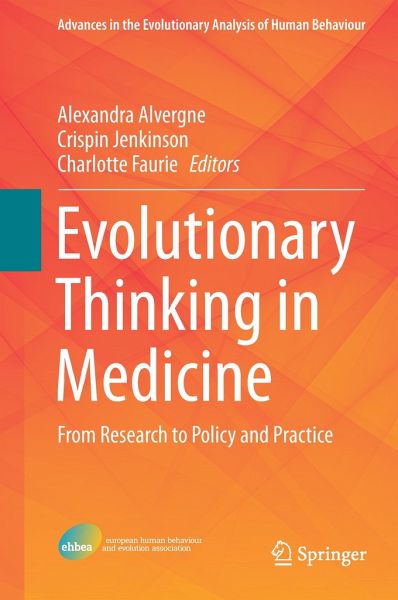
Evolutionary Thinking in Medicine
From Research to Policy and Practice
Herausgegeben: Alvergne, Alexandra; Jenkinson, Crispin; Faurie, Charlotte

PAYBACK Punkte
34 °P sammeln!
The aim of this edited book is to provide health professionals, across a wide variety of specialisms, with a targeted access to evolutionary medicine. Throughout the book, the views of both medical and evolutionary scientists on the latest relevant research is presented with a focus on practical implications. The inclusion of boxes explaining the theoretical background as well as both a glossary for technical terms and a lay summary for non- specialists enable medical researchers, public health professionals, policy makers, physicians, students, scholars and the public alike to quickly and eas...
The aim of this edited book is to provide health professionals, across a wide variety of specialisms, with a targeted access to evolutionary medicine. Throughout the book, the views of both medical and evolutionary scientists on the latest relevant research is presented with a focus on practical implications. The inclusion of boxes explaining the theoretical background as well as both a glossary for technical terms and a lay summary for non- specialists enable medical researchers, public health professionals, policy makers, physicians, students, scholars and the public alike to quickly and easily access appropriate information. This edited volume is thus relevant to anyone keen on finding out how evolutionary medicine can improve the health and well-being of people.












